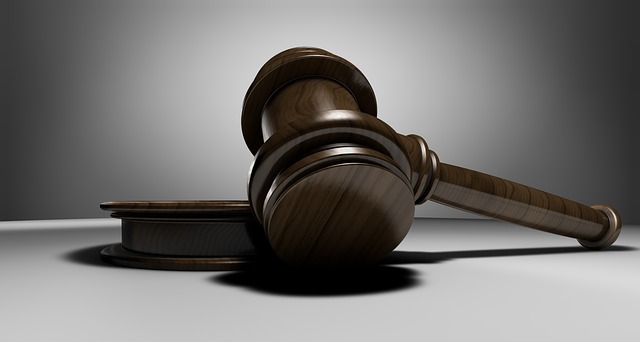Regulatory compliance is a complex, high-stakes game with severe consequences for non-compliance, making expert guidance crucial. Jury consultants play a vital role in navigating these complexities, bridging legal and public understanding gaps. They help select impartial juries, dissecting potential biases to ensure fair trials. Their expertise in jury psychology aids in developing strategies that resonate with public perception, particularly beneficial for high-risk sectors like philanthropy and politics. By leveraging their knowledge of industry regulations and demographic factors, consultants guide clients through white-collar defense cases, presenting compelling evidence and securing favorable outcomes. The Role of Jury Consultants in Trials is essential for achieving regulatory compliance, protecting reputations, and maintaining market positions.
Regulatory compliance issues are a complex web that can make or break legal proceedings. In today’s litigious landscape, understanding these nuances is paramount, especially with the evolving regulatory framework. This comprehensive overview delves into the impact of non-compliance, highlighting its effects on legal strategies. With a keen focus on jury selection, we explore the significant role of jury consultants in navigating complex trials. Furthermore, best practices are presented to ensure regulatory compliance during trials, emphasizing the expertise required from these professionals.
- Understanding Regulatory Compliance Issues: A Comprehensive Overview
- The Impact of Non-Compliance on Legal Proceedings
- Jury Selection and Its Significance in Regulatory Cases
- Role of Jury Consultants: Expertise in Complex Trials
- Best Practices for Ensuring Regulatory Compliance During Trials
Understanding Regulatory Compliance Issues: A Comprehensive Overview
Regulatory compliance issues are an intricate web that every business must navigate to avoid legal pitfalls. These issues encompass a wide array of regulations, from industry-specific standards to broad legal frameworks, designed to ensure fairness, safety, and ethical conduct. Understanding and adhering to these regulations is crucial for businesses aiming for long-term success and sustainability, especially in high-stakes sectors like healthcare, finance, and technology.
The role of jury consultants in trials cannot be understated, particularly when navigating complex regulatory compliance issues. These experts leverage their deep understanding of the legal landscape and human behavior to guide strategies that win challenging defense verdicts. By bridging the gap between legal intricacies and public perception, they help shape narratives that resonate with juries, ensuring that clients, especially within the philanthropic and political communities, are represented effectively. Their skill in presenting compelling cases while adhering to regulatory boundaries is instrumental in achieving positive outcomes for his clients.
The Impact of Non-Compliance on Legal Proceedings
Non-compliance with regulations can have severe consequences, particularly in legal proceedings. When organizations or individuals fail to adhere to set rules and guidelines, they risk facing significant penalties, including fines, licensing revocations, and even criminal charges. These repercussions can significantly impact the outcome of legal cases, especially in complex white-collar defense scenarios. The role of jury consultants in such trials becomes pivotal; they help shape the presentation of evidence and arguments to sway public opinion, a crucial factor in winning challenging defense verdicts for his clients.
The consequences of non-compliance are often far-reaching. They can lead to not only financial losses but also damage to an organization’s reputation, loss of customer trust, and erosion of its market position. In some cases, regulatory violations may result in direct harm to consumers or the environment, further complicating legal battles. Jury consultants, with their expertise in public perception and behavior, play a strategic role in helping defend individuals and entities accused of non-compliance, ensuring they present the best possible case in court.
Jury Selection and Its Significance in Regulatory Cases
In regulatory compliance cases, jury selection goes beyond mere procedural steps; it’s a pivotal aspect that can shape the outcome. The role of Jury Consultants is increasingly significant as they bring expertise to navigate complex legal landscapes and understand public perception. These consultants aid in identifying jurors with the right balance of knowledge, attitudes, and experiences relevant to the case, ensuring fairness and accuracy in deliberations.
Jury consultants leverage their unprecedented track record across the country to analyze potential biases and prejudices at all stages of the investigative and enforcement process. They employ sophisticated strategies to select impartial individuals who can objectively consider evidence, thereby avoiding unexpected verdicts due to unforeseen influences. This meticulous approach is especially crucial in regulatory cases where intricate legal arguments often blur public understanding, making a well-informed jury indispensable.
Role of Jury Consultants: Expertise in Complex Trials
Jury consultants play a pivotal role in complex trials, offering expertise that can significantly shape the outcome of litigation. In high-stakes cases, particularly involving white-collar defense, these professionals provide invaluable insights into jury psychology and behavior. They analyze potential jurors, helping attorneys anticipate their reactions and biases, which is crucial for strategic decision-making during selection processes.
Their in-depth understanding of various demographic and social factors enables them to guide respective business strategies, ensuring that legal teams present compelling cases tailored to the jury’s perception. By achieving extraordinary results through these insights, jury consultants contribute to successful outcomes, especially in intricate trials where public perception can be a game-changer.
Best Practices for Ensuring Regulatory Compliance During Trials
Ensuring regulatory compliance during trials is paramount for both corporate and individual clients, especially in high-stakes cases where one misstep can have severe consequences. Best practices involve a multifaceted approach, starting with meticulous preparation. This includes thorough research of applicable laws and regulations specific to the industry, as well as staying updated on any changes or interpretations that could impact the trial. Engaging experienced professionals, such as jury consultants, plays a crucial role in navigating these complex waters.
Jury consultants offer invaluable insights into potential biases, perceptions, and decision-making processes of jurors. By leveraging their expertise, organizations can craft strategies to present information in a clear, compelling manner that resonates with the jury. This is particularly important in high-stakes cases where an unprecedented track record of regulatory compliance can significantly influence outcomes. Additionally, these consultants help in managing witness testimony, crafting persuasive legal arguments, and designing visual aids that enhance understanding and engagement, ultimately ensuring the integrity of the trial process and protecting the interests of all involved parties.
Regulatory compliance issues are intricate aspects of legal proceedings, with significant implications for outcomes. Understanding these complexities, as outlined in this article, is paramount for legal professionals. From comprehending the impact of non-compliance to recognizing the pivotal role of jury selection and the expertise offered by jury consultants, each element plays a crucial part. By adopting best practices for regulatory compliance during trials, including leveraging the insights and strategic guidance from jury consultants, legal teams can enhance their chances of success while navigating these challenging cases effectively.






